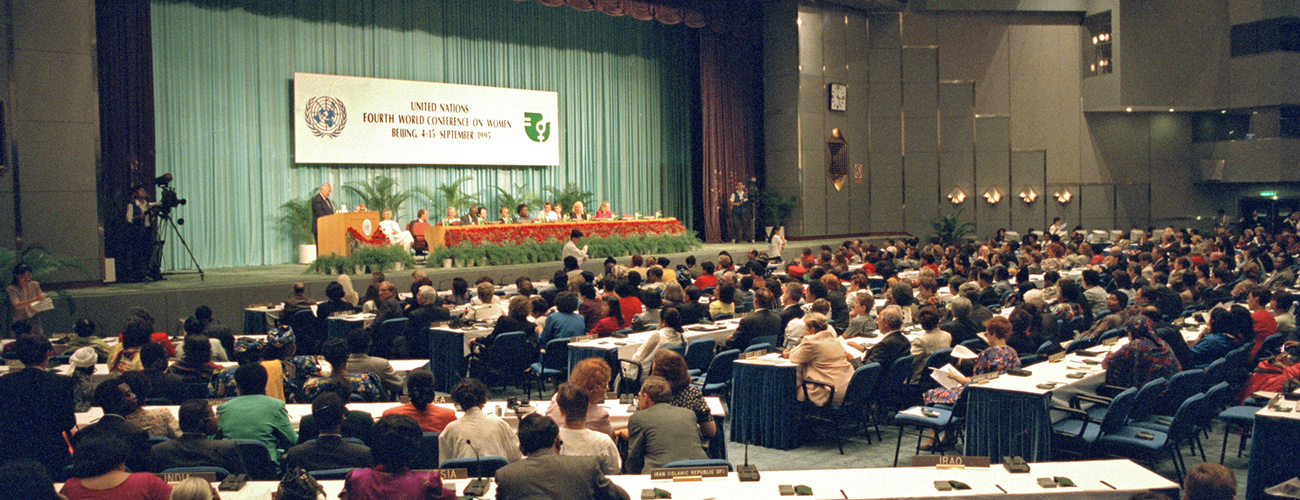
Fourth World Conference on Women, 4-15 September 1995, Beijing, China
Background
The landmark conference on women
The Fourth World Conference on Women in Beijing, China was the most important of the four conferences on women held between 1975-1995, because it built on political agreements that had been reached at the three previous global conferences on women, and it consolidated five decades of legal advances aimed at securing the equality of women with men in law and in practice. More than 17,000 participants attended the conference, including 6,000 government delegates at the negotiations, more than 4,000 accredited NGO representatives, a host of international civil servants and around 4,000 media representatives. A parallel NGO Forum held in Huairou near Beijing also drew some 30,000 participants.
The conference marked a significant turning point for the global agenda for gender equality. The Beijing Declaration and Platform for Action, adopted unanimously by 189 countries, was an agenda for women’s empowerment that is now considered the key global policy document on gender equality. It set strategic objectives and actions for the advancement of women and the achievement of gender equality in 12 critical areas of concern:
The four world conferences on women convened by the United Nations in the last quarter of the twentieth century were instrumental in bringing the cause of gender equality to the center of the global agenda. The conferences united the international community behind a set of common objectives, with an effective plan of action for the advancement of women everywhere.
The UN Division for Women, in its review of the four World Conferences, stated "The fundamental transformation that took place in Beijing was the recognition of the need to shift the focus from women to the concept of gender, recognizing that the entire structure of society, and all relations between men and women within it, had to be re-evaluated. Only by such a fundamental restructuring of society and its institutions could women be fully empowered to take their rightful place as equal partners with men in all aspects of life. This change represented a strong reaffirmation that women's rights were human rights and that gender equality was an issue of universal concern, benefiting all."
